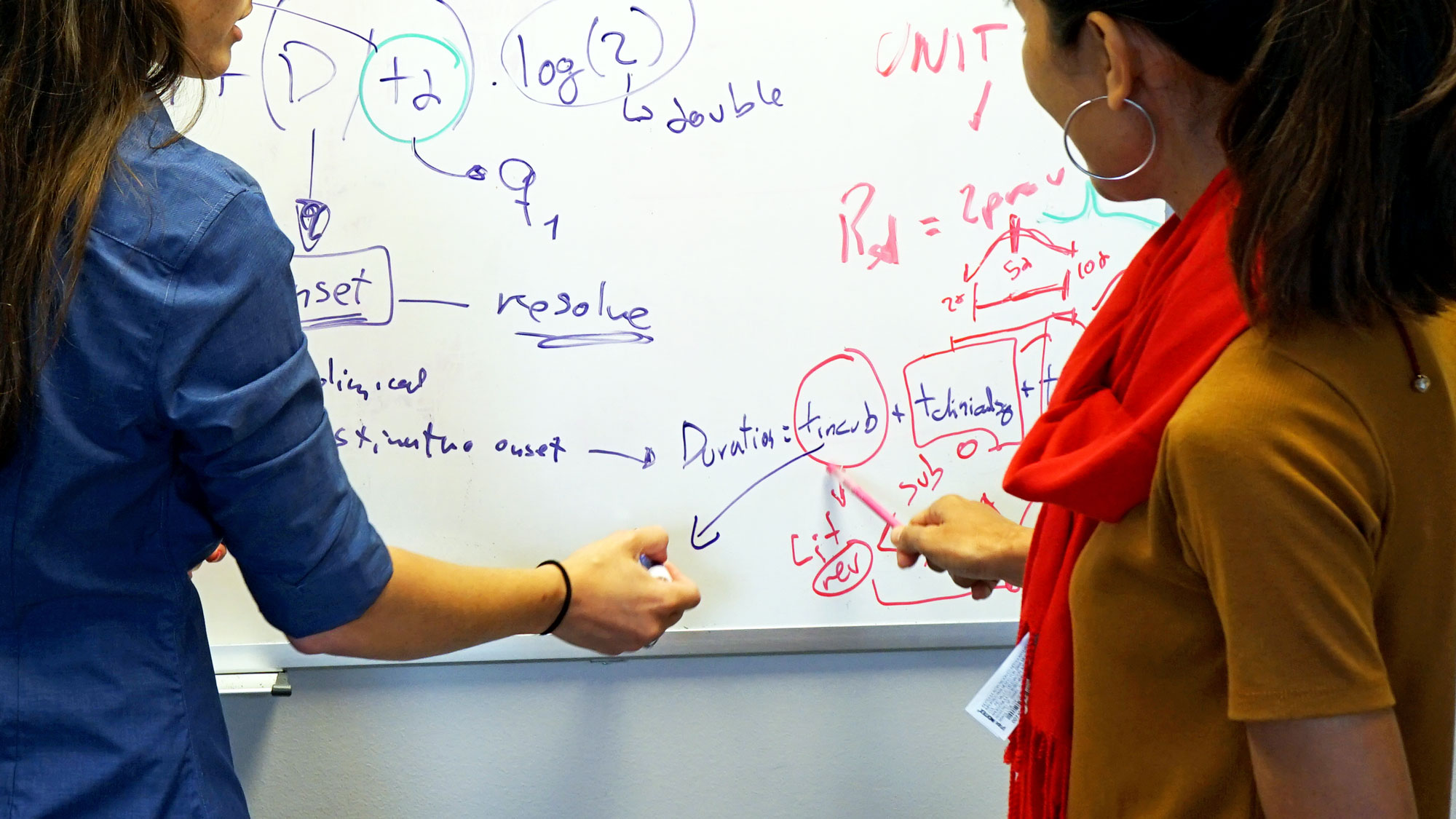
Researchers from CAHFS and Chiang Mai University working on foot and mouth disease modeling | Photo by Anna Pendleton
Letter from the director
Research is considered one of the core activities of many land-grant universities. Hypothesis-driven research seeks to address a specific, measurable, and answerable question.
In general terms, scientists formulate questions, and then apply an objective methodological approach, accepted by the scientific community, to find answers for those questions.
However, research activities only result in improvements when they are transferred to the public through development, outreach, and capacity building activities. In the words of the United Nations Development Program, "capacity" is the ability of individuals, institutions, and societies to “perform functions, solve problems, and achieve objectives.” The ultimate goal of any capacity building or outreach program should be the transformation and empowerment of a targeted group to achieve these things. In order for a program to be transformative, it has to go beyond the expectation of just performing tasks, leading to changes in mindsets and attitudes.
At the University of Minnesota Center for Animal Health and Food Safety (CAHFS), we believe that the scientific method, and answers generated through hypothesis-driven research, are the cornerstone for transformation, development, and growth. Following the University of Minnesota motto, “driven to discover,” CAHFS promotes the use of traditional and novel scientific tools to provide solutions to the emerging problems of our world, with the ultimate goal of improving the safety and security of our food.
In this newsletter, we explore a number of initiatives intended to conduct hypothesis-driven research and explore the results of that research in the implementation of outreach and capacity building activities around the globe.
Specifically, we highlight here the research plan of one of CAHFS adjunct faculty, Mohammad Alkhamis, DVM, PhD, who is using novel epidemiological methods to elucidate critical aspects of the transmission of impactful infectious diseases. We also review important outreach initiatives in the state of Minnesota around chronic wasting disease, one of the most critical emerging diseases in wild animals and currently found in over half of US states.
We then share our experience collaborating with the USDA Foreign Agricultural Service in the implementation of a Cochran Fellowship training program for international partners, with the objective of helping to establish trade relations for US agricultural products. Finally, we introduce our partnership to support the mission of the USDA Agricultural Research Service, the federal agency that conducts research to develop solutions to high priority national agricultural problems.
At CAHFS, we are proud to serve as the vehicle for the transfer of groundbreaking research conducted at the University of Minnesota College of Veterinary Medicine, as well as by our internal and external partners, with the ultimate goal of promoting the health and wellbeing of animals, the environment, and people.
-Andres Perez
Director of CAHFS
See all - One to One Newsletter: October 2019

